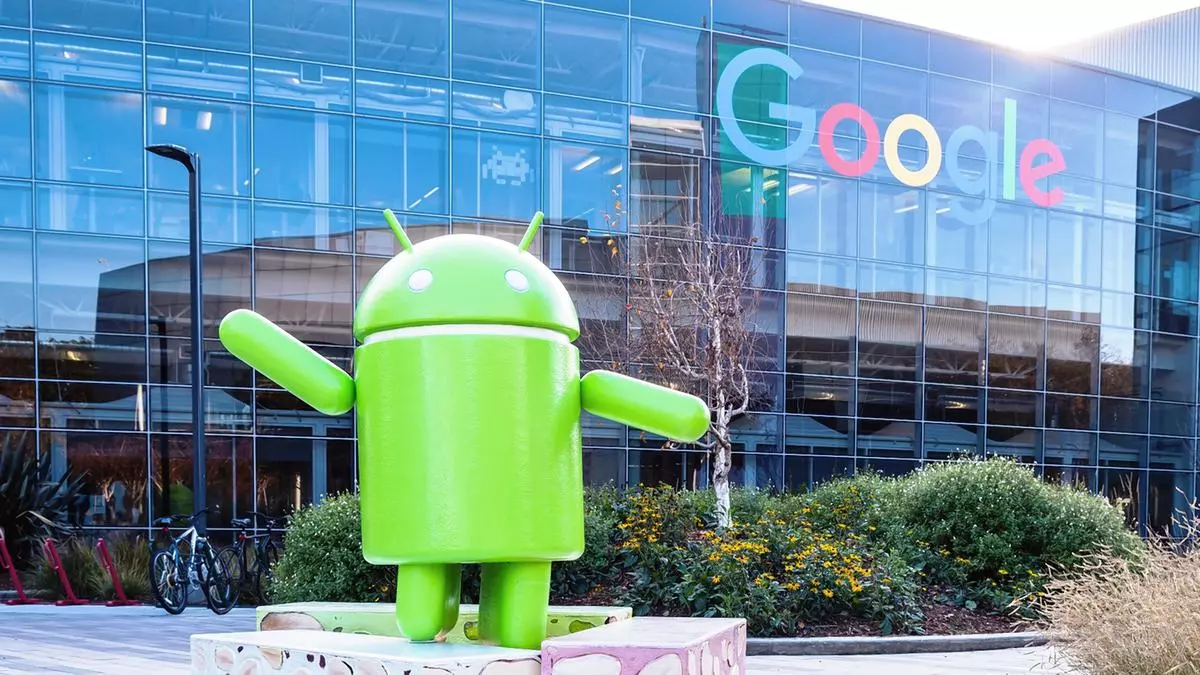Is CCI biased? Legal battle between Google and Amazon
Google claims that CCI asked them to make changes to their business model in order to protect interests of Amazon

CCI biased? Google v. Amazon Legal Battle
Google, the technology behemoth, has filed severe charges against the Competition Commission of India (CCI), alleging that the antitrust authority forced modifications to its business model primarily to benefit competitor Amazon. The claims follow the CCI’s judgments last year, which slapped significant penalties on Google and ordered the corporation to change its Android rules. According to legal documents seen by media houses, Google has accused the CCI of basing its inquiry into Google’s alleged misuse of dominance in the Android market on “unreliable and uncorroborated” allegations from Amazon.
Google has filed a case with the Supreme Court of India seeking an annulment of the CCI’s October judgment requiring the corporation to make 10 changes to its business model. The CCI found Google guilty of abusing its dominating position with the Android operating system, which today powers 97% of smartphones in India. Google’s most recent court filing demonstrates its growing dissatisfaction with the CCI’s approach to examining the Android ecosystem.
Allegations against CCI for Favoritism towards Amazon:
According to Google, the CCI relied unduly on Amazon’s concerns during the inquiry, implying that the antitrust authority was looking out for Amazon’s interests. Google has petitioned the Supreme Court to overturn an order issued by the CCI in October that required the firm to make ten changes to its business model after the CCI determined that the company had exploited its dominant position in the marketplace using its Android operating system, which runs ninety-seven percent of India’s smartphones.
Google claimed in a December petition in a lower tribunal that CCI officers had copy pasted elements of a European judgement against it in an identical case, which CCI rejected. Google was fined $163 million by CCI in October. CCI stated in its ruling that customized editions of its Android operating system, known as Android forks, will be freely disseminated without any license limitations, such as those linked to Google app pre-installation.
During the probe, Amazon informed the CCI that Google’s limitations hampered development of its Android derivative called Fire OS, and Google claimed that the watchdog improperly relied on that in reaching its negative judgement against it, according to the company’s June 26 Supreme Court petition. Google claims that Fire OS was a commercial failure worldwide owing to poor user experience, and that it was never even introduced in India.
Google claims that notwithstanding Amazon’s lack of a meaningful endeavor to get into the Indian market, the CCI blamed Amazon’s failure to compete on Google’s agreements.

Implications on a Global Scale:
Google’s concerns transcend beyond the Indian market, with the corporation seeing the CCI instructions as substantially more far-reaching than the European Commission’s historic judgement in 2018, that addressed Google’s misuse of the Android market. As a result, Google has questioned both the South Korean and European Android orders, underlining the importance of the Indian market in its worldwide operations.
In accordance to the CCI’s October judgement, its inspectors discovered that Google’s contractual limitations had reduced the ability and motivation of device makers to produce and sell’ products based on Android forks, harming consumer interests. According to court documents, Amazon told Indian investigators that the development of Fire OS, a modified version of Android, required “substantial resources” involving thousands of staff hours.
Despite making major adjustments to its Android business strategy as a consequence of the CCI’s direction, Google continues to challenge any sanctions and disputes any form of market abuse. The CCI, on the other hand, requires that Google completely comply with its directions. The decision of the Supreme Court case will have far-reaching repercussions for the Indian IT industry, the global antitrust scene, and the dynamics between Google, its competitors, and regulatory agencies.
Google’s claim that the CCI is shielding Amazon in the Android investigation adds another degree of complication to the current antitrust lawsuit. With the matter having reached the Supreme Court, the eventual decision will have a substantial influence on the Indian market’s competitive dynamics, as well as larger repercussions for global tech companies. The case illuminates the developing regulatory framework around leading technology businesses and emphasizes the necessity of fair competition throughout the digital ecosystem.

Only time will tell what happens in this court struggle and what it means for Google, the CCI, Amazon, and the Indian Android industry. This case exemplifies the rising difficulties and obstacles that dominant technology businesses confront when addressing antitrust legislation in many states. Fair competition is necessary for encouraging innovation, customer choice, and market dynamics.
When regulatory agencies are believed to favor one firm over another, the ideals of fair competition are undermined, and innovation and market expansion can be stifled. It is critical for regulatory organizations to stay neutral, fair, and transparent in their methods for making decisions in order to establish a healthy global dynamic.
The continuing legal dispute between Google and the CCI serves as a timely reminder of the critical role that regulatory organizations play in preserving fair competition and avoiding anticompetitive behavior. In order to eliminate inconsistencies and potential partiality, it also emphasizes the necessity of clear rules and uniform implementation of antitrust laws throughout all relevant countries.
In the end, consumers, the larger global economy, and the enterprises involved all gain from a fair and competitive digital environment. The outcome of this case will be keenly followed since it might create a precedent for similar cases throughout the world and have an impact on future competition regulation in the IT sector.
Finally, it is critical to overcome bias and promote fair competition in the global technology business. By doing so, we can create an atmosphere that promotes innovation, consumer choice, and healthy market dynamics, resulting in an enhanced and more dynamic global environment for both businesses and customers alike.





